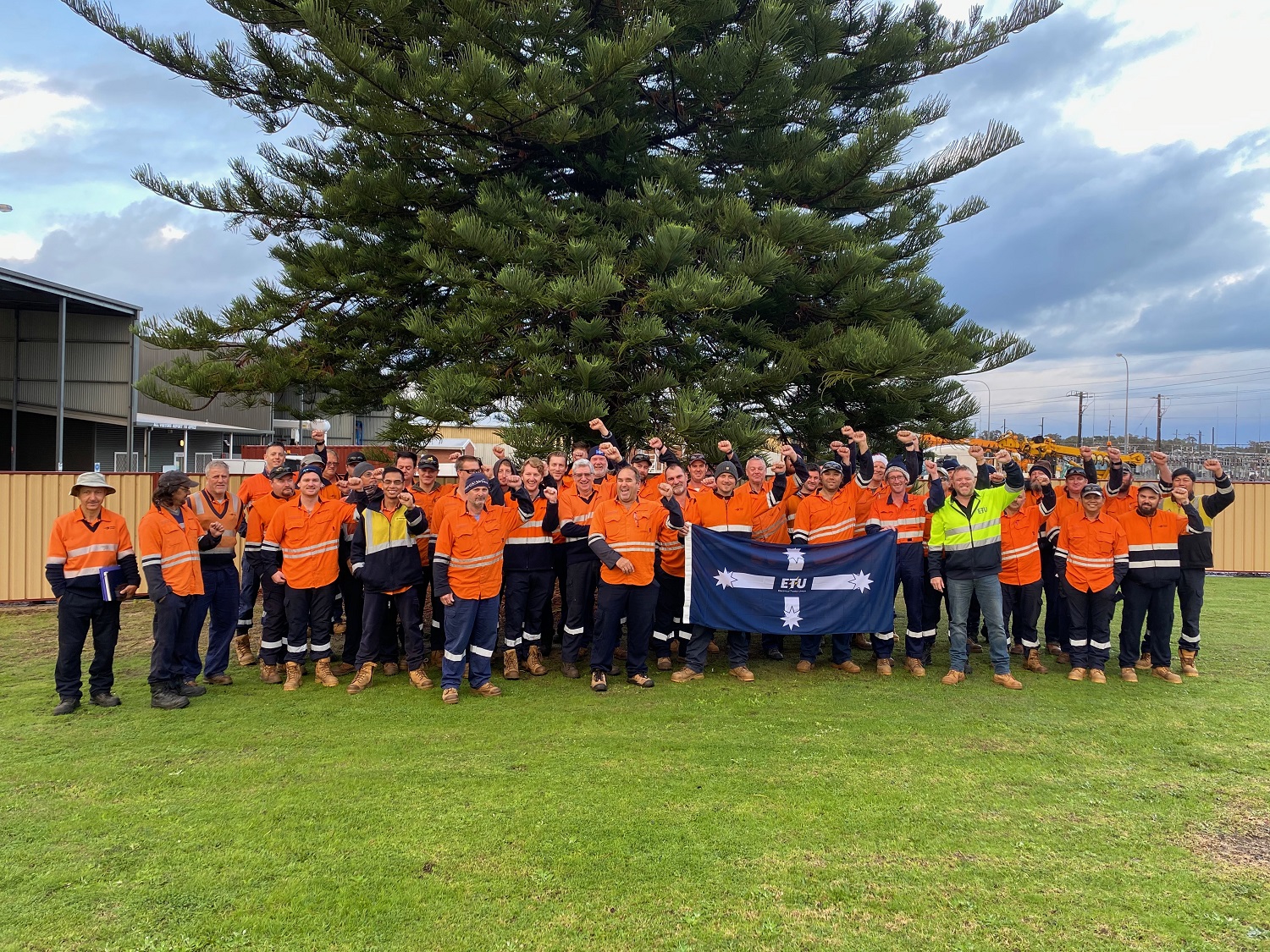Since August last year, workers at Western Power in WA have been negotiating a new enterprise bargaining agreement (EBA) to improve staffing on regional depots and receive fair compensation for working in extreme weather conditions and working through their unpaid lunch breaks.
They work 365 days a year in all kinds of weather and terrain to maintain and restore power, such as during February’s massive fires and, recently in the Kalbarri and Geraldton areas after Cyclone Seroja.
In early May, ETU members at Western Power returned a vote of more than 90% in favour of taking industrial action for a decent EBA, including bans, limitations and, if needed, strike action.
This was on the back of the workers voting down Western Power’s last EBA offer by more than 98%. This is massive result considering there are more than 800 workers across over 26 depots in WA.
The claims for the new agreement include allowances to compensate work carried out in extreme conditions. Workers must sometimes work in heat above 38C, with one site recording a temperature of 53C, or through periods of sustained rain. In these conditions working on high voltage powerlines the safety risk is greatly increased. The ETU’s claim to compensate members for this increased risk, as they do in other areas of the agreement for riskier work, would only be paid to the worker in emergency situations or where the work cannot be stopped or rescheduled.
Another major sticking point in the log of claims is including a job security of employment clause to address the issue of outsourcing work to private contractors. These contractors are paying workers substandard wages (the award rate in some cases) to do the same job.
Western Power workers never asked for a wage increase in their log of claims due to the fact that there are too many other issues, safety and industrial related that haven’t been addressed outside the EBA as was promised by Western Power.
Both Western Power and the State Labor Gov have done nothing to fix the free fall of industry standards in this sector by allowing contractors to get away with this.
At regional depots, understaffing is resulting in workers having less people to complete a wide range of roles, a lack of work/life balance and poor mental health issues. There is a lack of support and supervision and many workers must work through their 30-minute meal breaks unpaid to maintain power to the sites. Workers need to take on up to as many as three salaried roles that were done by support staff before a major round of job cuts by Western Power in 2016/17.
Industrial action
After their EBA was voted down, Western Power refused to negotiate further.
The ETU then implemented some light work bans to push their claims on understaffed regional depots and compensation for working in extreme weather conditions.
Western Power retaliated by locking the workers out completely and accusing the ETU of ‘holding the state to ransom’, despite the fact that they had refused to negotiate since January.
They published a statement with false claims, undermining the issues raised by the workers and Western Power’s role in creating unsafe workplaces. They blamed the workers for delays in returning power to cyclone affected areas, even though they had locked the workers out themselves. Ironically, the workers were locked out for taking a two-hour stop work meeting to agree unanimously that the cyclone affected areas would not be affected by any industrial action. Western Power are also responsible for cutting the emergency response roster in half some years ago, affecting response times.
“I have concerns now that our biggest hurdles going forward in this dispute is the Western Power executive and board’s egos thinking that getting a satisfactory outcome between the company and our members is backing down and looking weak,” said ETU WA Assistant Secretary Brendan Reeve.
“Getting a satisfactory agreement in our book would actually be them showing leadership instead.
“We would like to know where they’re getting their advice.
Western Power and state government need to take responsibility for not delivering on the promises to fix the above issues for four years when they have constantly promised they will.
“The ETU is always willing to discuss a satisfactory resolution as we reassure Western Australians that we will not put their safety at risk (or turn the power off) as Western Power have been inferring to the public through the media,” said Mr Reeve.
“Our members won’t be pushed around any longer. They’ve had enough.
“We ask the public at this time to support our workers and understand the real story going on here.”
